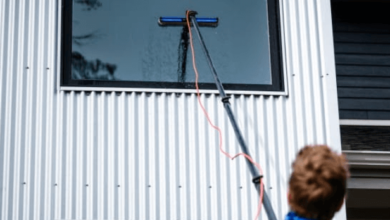Airbnb Management Agreement: A Comprehensive Guide for Property Owners

As short-term rentals continue to rise in popularity, more property owners are turning to professional management services to handle the day-to-day operations of their Airbnb listings. An essential component of this relationship is the Airbnb Management Agreement—a legally binding document that outlines the terms and conditions between the property owner and the management company or individual.
This article dives into the key elements of an Airbnb management agreement, why it’s crucial, and how it protects both parties involved.
An Airbnb management agreement is a contract between a property owner and a property management company or manager that details the scope of services, responsibilities, and compensation related to managing an Airbnb property. It ensures transparency and defines the expectations, helping to prevent misunderstandings or disputes.
This document covers various aspects of property management, such as guest communication, cleaning, pricing strategy, maintenance, and more.
Why is an Airbnb Management Agreement Important?
1. Clear Division of Responsibilities
The agreement clarifies who is responsible for what. For example, the management company might handle bookings and guest interactions, while the owner takes care of major repairs or upgrades. This prevents confusion and ensures smooth operations.
2. Legal Protection
A well-drafted agreement provides legal protection for both the property owner and the management company. In case of disputes, the agreement acts as a reference to resolve issues based on pre-defined terms.
3. Transparent Financial Arrangements
The agreement lays out the financial terms, including management fees, revenue splits, and payment schedules. This transparency ensures both parties are aware of how income and expenses are handled.
4. Sets Performance Standards
By specifying key performance indicators (KPIs) like occupancy rates or guest satisfaction levels, the agreement holds the management company accountable for delivering quality service.
See also: The Essential Role of Closing Costs in Real Estate
Key Elements of an Airbnb Management Agreement
1. Parties Involved
The agreement should clearly identify the parties: the property owner and the management company or manager. This includes full names, contact information, and addresses.
2. Scope of Services
This section outlines the specific services the management company will provide, such as:
- Guest communication and support
- Calendar management and bookings
- Cleaning and turnover services
- Property maintenance and inspections
- Dynamic pricing strategies
- Marketing and listing optimization
3. Duration of the Agreement
Specify the start and end dates of the agreement. Some contracts are for a fixed term, while others are open-ended. Additionally, include terms for renewal or termination.
4. Fees and Payment Terms
This section covers how the management company will be compensated. Common fee structures include:
- Percentage of Revenue: The company takes a percentage of the rental income (e.g., 20-30%).
- Flat Monthly Fee: A set amount charged regardless of income.
- Hybrid Model: A combination of both.
Additionally, clarify the payment schedule, who covers expenses like repairs and cleaning, and how payments are processed.
5. Owner Responsibilities
The agreement should define the owner’s obligations, which might include:
- Providing funds for maintenance or emergencies
- Keeping the property insured
- Ensuring the property complies with local regulations
6. Termination Clause
Include the terms under which either party can terminate the agreement, such as:
- Breach of contract
- Failure to meet performance standards
- Advance notice (e.g., 30-60 days)
7. Liability and Insurance
To protect both parties, the agreement should address liability issues and specify required insurance coverage, such as:
- Homeowner’s insurance
- Short-term rental insurance
- Liability coverage for guest injuries
8. Conflict Resolution
Include a section detailing how disputes will be handled, such as mediation or arbitration, to avoid costly legal battles.
9. Compliance with Local Laws
The agreement must ensure that the property complies with local laws and regulations regarding short-term rentals, taxes, and permits.
Benefits of Having an Airbnb Management Agreement
1. Peace of Mind for Property Owners
With a management agreement in place, property owners can trust their property is being managed professionally and profitably, allowing them to focus on other priorities.
2. Increased Revenue
Professional managers often use dynamic pricing tools, high-quality listings, and marketing strategies to maximize bookings and increase revenue.
3. Enhanced Guest Experience
By outsourcing guest communication and on-the-ground support to experts, property owners ensure a seamless and enjoyable experience for guests, leading to better reviews and repeat bookings.
4. Time Savings
Managing an Airbnb property can be time-intensive. An agreement allows property owners to delegate these tasks, freeing up their time.
5. Reduced Risk
The agreement mitigates risks by clearly defining responsibilities, financial arrangements, and liability coverage, ensuring both parties are protected.
Common Pitfalls to Avoid
1. Vague Terms
Avoid agreements with ambiguous language. Be specific about responsibilities, fees, and performance expectations.
2. Not Reviewing Local Regulations
Ensure the agreement aligns with local short-term rental laws to avoid fines or legal issues.
3. Failure to Address Termination
Without a clear termination clause, ending the agreement can become problematic. Ensure the terms for termination are fair and transparent.
4. Overlooking Insurance Requirements
Both parties should verify that the property has adequate insurance coverage to protect against damages or liability claims.
Tips for Drafting an Effective Airbnb Management Agreement
1. Consult a Legal Expert
Always have the agreement reviewed by a legal professional familiar with short-term rental laws to ensure compliance and fairness.
2. Customize the Agreement
Avoid generic templates. Tailor the agreement to reflect the unique needs of your property and management arrangement.
3. Include Performance Metrics
Set measurable goals, such as maintaining a minimum occupancy rate or achieving a specific average nightly rate.
4. Maintain Open Communication
Foster a collaborative relationship by maintaining open communication with the management company and regularly reviewing the agreement’s terms.
When to Consider an Airbnb Management Agreement
An Airbnb management agreement is essential in the following situations:
- First-Time Hosts: New hosts who lack the time or expertise to manage a property.
- Multiple Properties: Owners managing several listings who need professional assistance.
- Remote Hosting: Property owners who live far from their rental property and can’t manage day-to-day operations.
- Desire for Passive Income: Owners looking to earn rental income without the time commitment.
Conclusion
An Airbnb management agreement is a cornerstone of a successful partnership between property owners and management companies. It ensures transparency, defines responsibilities, and provides legal protection for both parties. By understanding the key components of this agreement and customizing it to your needs, you can maximize the potential of your Airbnb property while enjoying peace of mind.
Whether you’re a first-time host or a seasoned property owner, having a well-drafted management agreement is an investment in the long-term success of your rental property.







